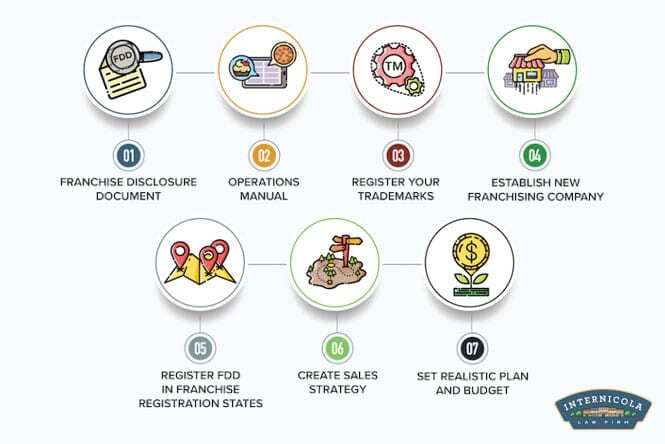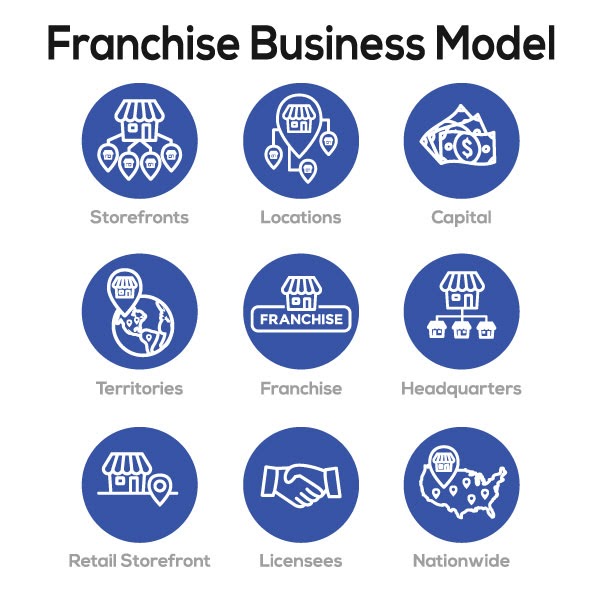How To Franchise Your Own Business

The dream of expanding a successful business model is a common one, but the jump from single operation to widespread franchise can be daunting. Transforming a thriving business into a franchise system requires careful planning, legal navigation, and a significant investment of time and resources. Understanding the intricacies involved is crucial for entrepreneurs considering this expansion route.
Turning a successful business into a franchise is a complex process involving legal structuring, operational standardization, and the creation of a sustainable support system. This article explores the key steps and considerations involved in franchising a business, offering guidance for entrepreneurs contemplating this expansion strategy.
Is Your Business Franchise-Ready?
Not all businesses are suited for franchising. A crucial first step is assessing whether your business model is replicable, profitable, and transferable. Can your business be easily taught and consistently implemented by others?
Profitability is paramount. Your business needs a proven track record of financial success to attract potential franchisees. Also, can the business model be successfully replicated in different locations and markets?
Developing a Franchise Model
Creating a detailed and standardized operating system is fundamental. This involves documenting every aspect of your business, from daily operations to marketing strategies, into a comprehensive operations manual.
This manual will serve as the franchisee's guide to running the business according to your established standards. It ensures consistency across all franchise locations and protects your brand identity.
Legal and Financial Considerations
Franchising involves significant legal and financial complexities. The most important legal document is the Franchise Disclosure Document (FDD), which is required by the Federal Trade Commission (FTC).
The FDD provides potential franchisees with crucial information about the franchisor, including financial performance, litigation history, and franchisee obligations. It must be compliant with all applicable federal and state regulations.
Consulting with a franchise attorney is essential to ensure legal compliance and protect your interests. You will also need a financial advisor to help you develop a sustainable franchise fee structure and royalty system.
Building a Support System
Providing ongoing support and training to franchisees is vital for their success and the overall health of the franchise system. This includes initial training programs, ongoing operational support, and marketing assistance.
Establishing clear communication channels and providing resources for franchisees to address challenges and share best practices is critical. Consider implementing a technology platform for communication, training materials, and operational tools.
A well-structured support system fosters a strong relationship between the franchisor and franchisees, leading to greater satisfaction and success for both parties. According to the International Franchise Association (IFA), strong franchisor-franchisee relationships are key to long-term success.
Marketing and Recruitment
Attracting qualified franchisees is essential for expanding your franchise network. Develop a comprehensive marketing strategy to reach potential franchisees who align with your brand values and have the necessary resources and skills.
Utilize online advertising, franchise expos, and industry publications to promote your franchise opportunity. Clearly articulate the benefits of joining your franchise system and the support you provide.
Implement a thorough screening process to identify candidates who are a good fit for your franchise. This may involve interviews, background checks, and financial reviews.
"Franchising is a powerful way to grow a business, but it's not a shortcut to success," says Michael Seid, Managing Director of MSA Worldwide, a leading franchise consulting firm.
Franchise success requires careful planning, strong execution, and a commitment to supporting your franchisees.
Long-Term Management and Growth
Franchising is an ongoing process that requires continuous monitoring, adaptation, and innovation. Regularly evaluate your franchise system's performance and make adjustments as needed to maintain competitiveness and profitability.
Stay informed about industry trends and emerging technologies to keep your franchise system ahead of the curve. Invest in research and development to improve your products, services, and operational processes.
Building a successful franchise system requires a long-term commitment and a dedication to continuous improvement. By following these guidelines and seeking professional advice, you can increase your chances of realizing your franchising ambitions.


















